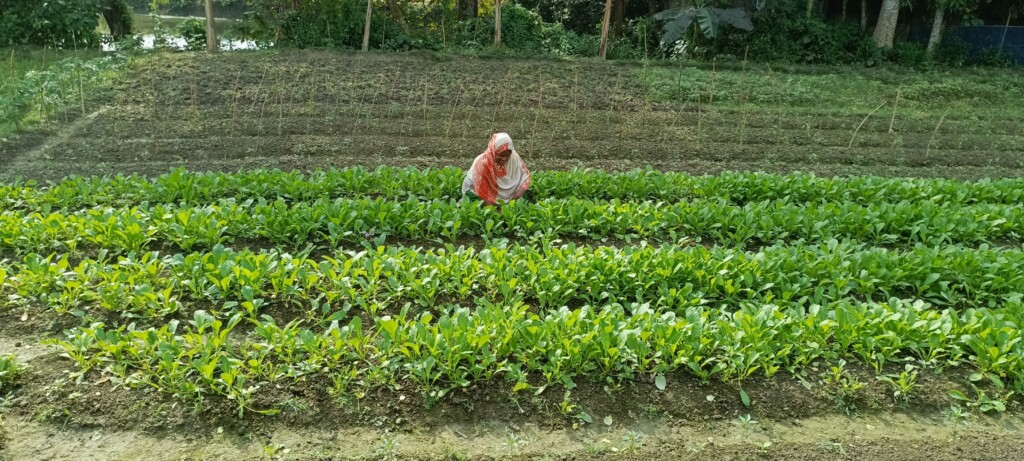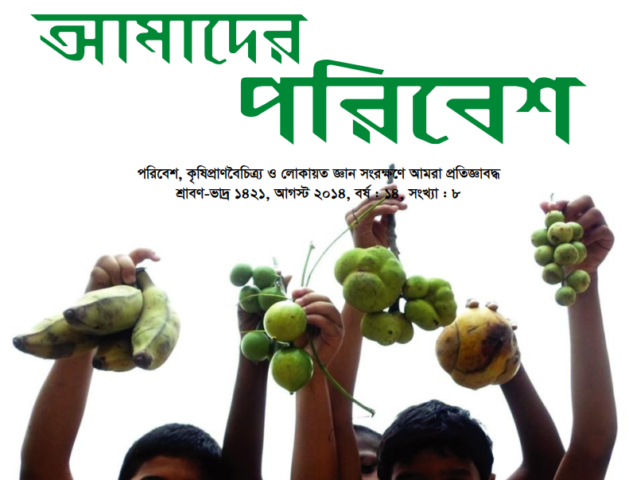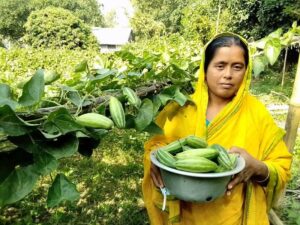By Happy Roy from Netrakona
Around 14,000 years ago, women gathered food from forests while men hunted. Through their keen observation, women discovered how seeds sprout into plants. Thus, agriculture was born through women’s hands. Scientists conduct research on a large scale, but women’s research space is their home, a small patch of sky, the courtyard, and a household with a few members.
These women bring prosperity to their families. With physical labor and intelligence, they make their homes livable. One such farmer is Rumela Akter from Ichail village in Shunui Union. She is a mother of three, and her husband is a farmer who works on others’ land. While her husband plows the fields, Rumela Akter puts in more labor in farming planting seeds, cares for crops, and making decisions about which crops to grow for both profit and family needs.
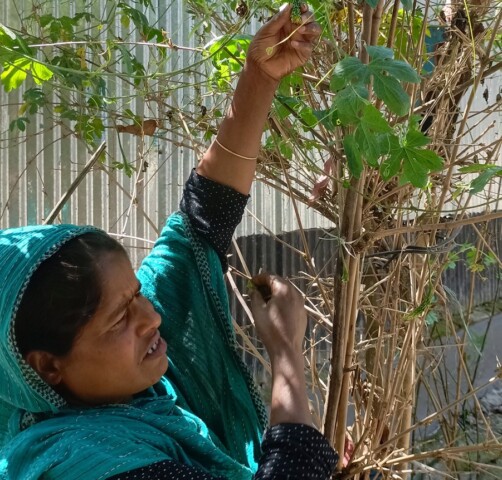
Rumela’s homestead is 1.75 decimals (about 760 sq. ft.), where she grows vegetables to meet family needs and generate income. Excluding the space for her house, she cultivates diverse crops such as muskmelon, pumpkin, Malabar spinach, papaya, year-round eggplant, bottle gourd, ridge gourd, snake gourd, spiny gourd, sponge gourd, taro, hyacinth beans, and more. She also shares her produce with neighbors. Her husband and son help her to sell the produce at the market, and she sometimes sells from home.
Additionally, she owns 160 decimals (about 70,000 sq. ft.) of land, where she grows chili, okra, eggplant, tomatoes, coriander, amaranth, jute leaves, potatoes, radishes, red spinach, mung beans, spinach, water spinach, and more. She also prepares rice seedlings there for a short period. By intercropping chili, tomatoes, eggplants, and amaranth, she makes efficient use of the land. For fertilization, she primarily uses cow dung and never applies herbicides, allowing a variety of uncultivated wild edible plants to grow, which her family consumes. The remaining weeds are used as cattle feed.
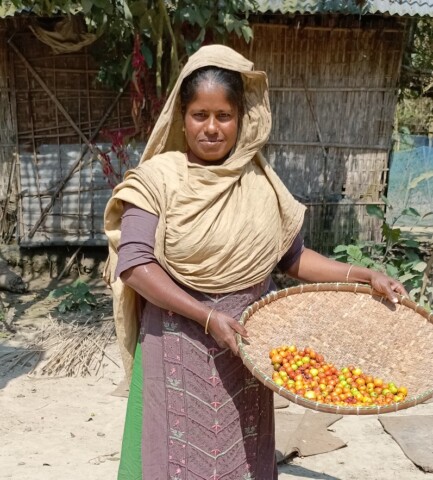
Rumela conserves all kinds of seeds using her own methods. Her house is made of corrugate, which heats up under the sun. She dries vegetable seeds under the corrugate, roof or near the walls and then preserves them in jars. She never dries seeds directly under the sun. She also sells seeds like amaranth, jute leaves, bottle gourd, and pumpkin, as well as saplings of eggplant, tomato, and chili in the local market.
Her homestead also includes fruit trees such as mango, jackfruit, lychee, olive, pomegranate, jujube, betel nut, coconut, starfruit, custard apple, pomelo, and guava. She preserves sour fruits like jujube, mango, and olives throughout the year by boiling, mashing, or sun-drying them. She also dries betel nuts in a small bamboo structure attached to her house, ensuring a year-round supply for consumption and sale.
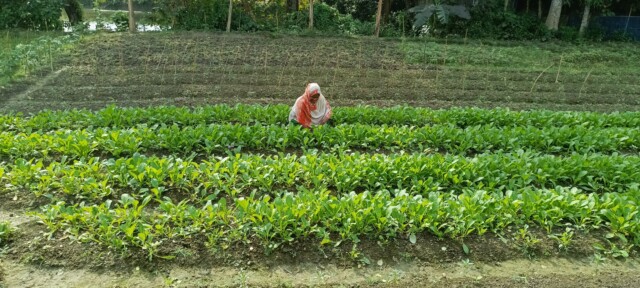
The income she earns from selling seasonal produce covers household expenses. She also rears and sells cows, ducks, and chickens. She prepares nutritious feed for poultry using local leaves and rice bran, which helps them lay more eggs. The eggs are consumed and sold, and selling poultry helps to meet household needs.
Rumela ensures a safe and healthy life by fulfilling her family’s nutritional needs through environmentally friendly practices. She doesn’t rely on market food but consumes her own organic produce. Her mixed-cropping method reduces pest infestations, eliminating the need for pesticides.
Despite having only primary education, Rumela Akter’s knowledge, intelligence, and wisdom surpass even highly educated individuals. Her experience-based practices do not only preserve her food culture but also sustain biodiversity.

